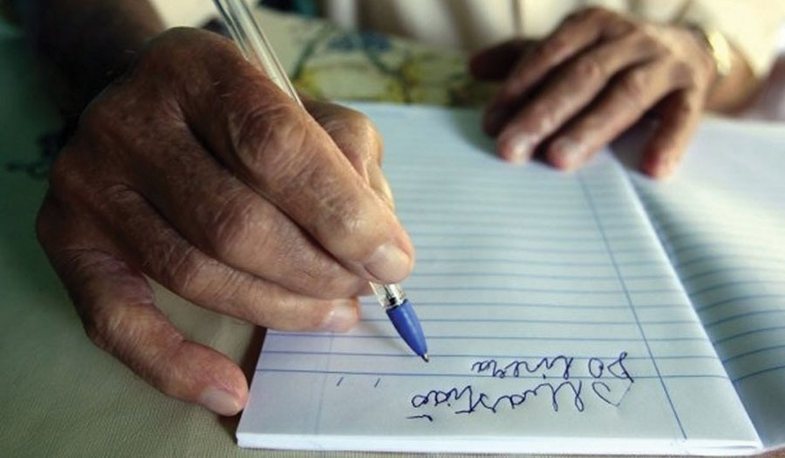
Today, November 22, is the National Alphabet Day. For the first time this historical date for Albania is treated and celebrated as an official holiday.
This date is one of the most important for our nation, since the Congress of the Alphabet or in other words the Congress of Manastir was held between November 14 - November 22, 1908, for the standardization of the alphabet of the Albanian language. Before the congress, the Albanian language was represented by six or more alphabets, not counting subvariants.
Through this Congress, the Albanian alphabet was agreed upon and established.
Illiteracy in 2024
Although 116 years have passed since the Congress of the Alphabet, illiteracy seems to have not yet been "cured" in Albania.
Data from the World Bank show that the number of people enrolled in primary schools is one of the lowest in Europe.
In 2023, the gross primary school enrollment rate in Albania dropped to 93.7%, from 105.4% in 2017, marking a sharp decline after the pandemic.
This means that those enrolled in primary school (regardless of age) were almost 94% of the 6-12 year old population. This is the lowest level, setting a record, since 1976, when the World Bank reported the data.
Illiteracy (functional)
Initially, illiteracy in the traditional context refers to people who do not know how to 'read and write'. But this is not the only type of illiteracy, as there is also what we often encounter as functional illiteracy. This term is used for people who know how to write and read, but are not able to internalize, analyze and process the material/text that is offered to them.
Demographic factors, poor quality of education in schools and school dropouts are the most influential factors in the increase of illiteracy. Mainly the most predisposed towards illiteracy are the deep rural areas, where the lack of teachers and policies to 'fight' this phenomenon are encountered the most.
"Cure" to illiteracy
The only and most necessary weapon for shrinking this phenomenon is the book. Families must convey to their children the desire and above all the example of reading.
One of the main problems is the fact that many parents/families are not 'familiar' with the book, not becoming an example for children. Cultivating the desire to read is a key shrine in expanding horizons from childhood.
Poverty is often seen as another element with a very significant impact on illiteracy and its extent. But in fact, the culture of reading and learning that must be inherited seems to influence more than poverty itself. That being said, many children who come from economically challenged families have proven that they can be excellent students.
Children are unable to create perceptions uninfluenced by anyone, so they constantly adopt the behavior of adults. In an environment where parents read, children tend to cultivate a desire to read and thus broaden their horizons.
The problems extend beyond the family, emphasizing here the problems of the system and the policies followed. Our country is facing a lack of education and to "fight" this problem, the criteria for anyone who chooses this profession have been lowered. The lack of well-qualified persons in the education system is a major problem. Likewise, the lack of teacher training is another problem.
Written with sources from: Monitor.al





